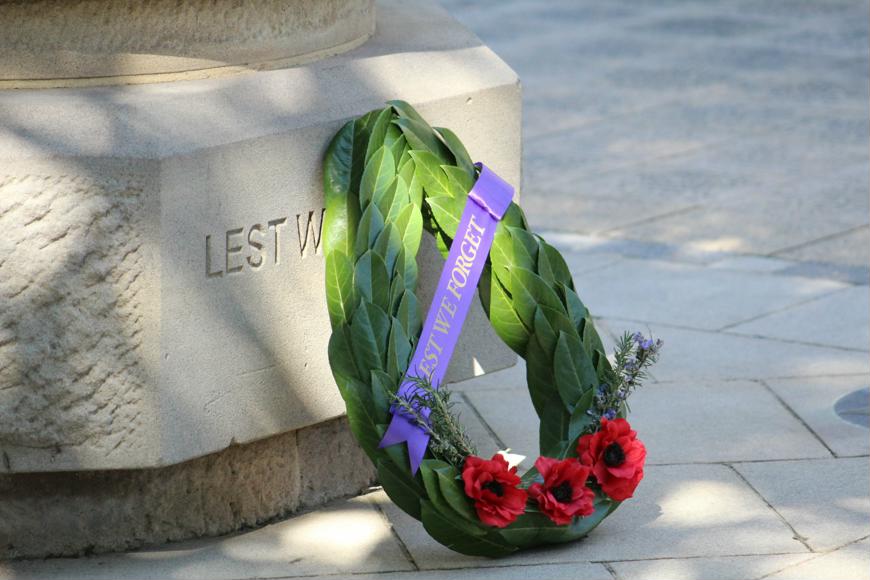August 19 - 25, 2018: Issue 372
VP Day 2018 - Commemorative Service at Avalon Beach RSL By Sub Branch
On Wednesday August 15th Members of Avalon Beach Sub Branch held a Commemorative Service for VP Day 2018, marking 73 years since the end of World War II.
While Victory in Europe was declared in May 1945, fighting in the Pacific region continued until August 1945.
In the early months of 1941, in the war against Japan, some 22,000 Australians were taken prisoner and endured a three and a half year battle to survive in prisoner of war camps across Asia, including those that provided labour to the Thai-Burma railway.
During the Second World War almost 40,000 Australians lost their lives, including more than 17,000 in the war against Japan — some 8,000 of these died in Japanese captivity.
The VP Day 2018 Address was given by Sub Branch Vice President Drew Martin:
VP DAY COMMEMORATION ADDRESS 2018
VP Day is a name chosen for the day on which the surrender of japan occurred, effectively ending World War II.
Despite the fact that the war in Europe ended with the German surrender on the 7th of May 1945, which was a week after the death of Adolf Hitler, the war in the Pacific continued until the American air force dropped atomic bombs on Hiroshima and Nagasaki on the 6th and 9th of August respectively. These bombs caused major destruction and great loss of civilian life in japan, but had the effect of bringing the war to an end and saving thousands of allied lives.
On the morning of 15th of August 1945 the Emperor of Japan announced that Japan would accept the Allies ultimatum to surrender. On the same day just after nine o’clock, as the majority of Australia would normally have been starting work, Prime Minister Ben Chifley’s voice was heard over the wireless sets of the nation announcing that japan had bowed to the ultimatum issued by the Allies and peace was at hand.
For Australians, it meant that the Second World War was finally over; and on the 2nd of September 1945 Japan formally surrendered to the allies in a ceremony on the deck of the USS Missouri in Tokyo Bay. Other surrenders of Japanese armies in the field took place across Asia and the Pacific. Thousands of Allied servicemen and women now began returning home, and surviving prisoners of war were released and repatriated.
The best way we can honour the Australians who served in the Second World war is to remember why they had to fight and to learn the lessons of those terrible days. The first lesson is that freedom carries a dear price. It is not guaranteed and has to be defended by each generation anew. The second lesson is that Australians have a great reserve of patriotism and determination that is often unrecognised.
Today we salute the million Australians who served in the second world war; we honour the thirty thousand Service men and women who were taken prisoner; we mourn the forty thousand who did not return. These men and women saved our country and we owe them the duty of learning from their experience.
-1043x580.jpg?timestamp=1534313805031)
From The Papers Of Those Days:
JAPAN SURRENDERS
The use of the atomic bomb and Russia's entry into the war against Japan have resulted very quickly in the complete eclipse of the Rising Sun. Japan's fate was sealed long before the advent of the new bomb. The great work of the Americans in capturing the Philippines and Okinawa, in smashing the Mikado's navy and in relentlessly bombing the big cities of the Japanese mainland made it clear that Japan was beaten, although the task of invading the mainland and defeating the enemy armies in Japan and Manchuria might have proved long and costly. But it was certain that as soon as Britain could throw her full strength in ships and manpower into the conflict alongside the forces of the United States the total defeat of Japan would be simply a matter of time. Then came the atomic bomb, the effect of which is so devastating that if the Allies had been compelled to continue to use it for any length of time it would inevitably have wiped out all the principal cities of Japan. The Japanese are the most fanatical people in the world, and it was thought that they might prefer total destruction to unconditional surrender. In that event it would have been necessary for the Allies to invade the mainland and also defeat the enemy forces in Manchuria.
Russia's decision to enter the war therefore solved the Manchurian problem. Japan was reported to have more than a million of her best troops in Manchuria, but it is doubtful if they could have made much of a stand against the present might of Russia. In 1939 there were a number of severe clashes on the Manchurian border, and, much to their surprise, the Japanese were badly whipped by the Russians. At that time the Russian armaments were not particularly good, but they were good enough to beat the enemy. To-day the Russians are armed with the most modem equipment— tanks, guns and aeroplanes supplied by Britain and America— in addition to the products of her own new factories. Throughout the war the Russians have kept a large army on the Manchurian border, and that great force was recently strengthened by veterans fresh from the triumph over Germany. It would seem therefore that the boasted Kwungtung army in Manchuria was doomed if it did not quickly surrender. Then again, Russia's entry into the war meant that the Allied air forces would have been able to operate against the Japanese mainland from the vicinity of Vladivostok, thus placing Japan's chief cities within very short range of the great bombers. Taking these facts into account, Allied experts at once predicted the early surrender of Japan. The only alternative seemed to be the total destruction of Japan's chief cities, and a reasonable person would expect the Japanese to throw down their arms in order to save something out of the wreckage. But past events had shown that the Japanese are unpredictable. Their readiness to die rather than surrender to overwhelming odds made it possible that if the decision, were left to the armed forces they would elect to resist to the end. Even in that event the end would have come quickly. The Allies would naturally have made the fullest use of the new bomb, which would have proved as devastating against armies as against cities. No notice would have been taken of the clamour in some quarters against, the use of the bomb.
The Allied High Command had the duty of ending the war with the least possible sacrifice of Allied lives, and the free use of the bomb seemed the best means to that end. The atrocities perpetrated by the Japanese have been beyond description. Those ferocious animals have slaughtered countless thousands of defenceless men, women and children for the mere love of killing, and they deserved no mercy. And then again, the free use of the bomb might have proved an unintentional act of mercy if it had had the effect of making the enemy realise more quickly the hopelessness of his position, thus bringing the deadly struggle to a speedier end. However, all speculation about what might have been has been ended by the glorious news that the Japanese have accented the Allied ultimatum of unconditional surrender. The Japanese proviso that the Emperor should be allowed to retain his position does not appear to be an obstacle to the conclusion of a settlement. At the time of writing no official report of the Allied reply to the Japanese offer of surrender has been .received, but it may be taken for granted that the war against Japan has ended. But while we in Australia are celebrating the surrender of Japan, we must remember the words of the late John Curtin: 'Part of our heart is locked up in Singapore.' To the men of the Eighth Division of the A.I.F., who have been prisoners in the hands of the Japanese for the past, four years, we owe a duty— they must 'be repatriated.
And for those who cannot be repatriated the Japanese war lords must pay. As far as Australia is concerned, the first job for Japan is to deliver up the prisoners for whose release the Allied forces have been fighting.
JAPAN SURRENDERS (1945, August 11). Kalgoorlie Miner (WA : 1895 - 1950), p. 4. Retrieved from http://nla.gov.au/nla.news-article95604395
Official -JAPAN SURRENDERS: EMPEROR TO GIVE CEASE-FIRE
Japan has surrendered unconditionally to the Allies.
This was announced in a dramatic midnight broadcast from London by British Prime Minister (Mr. Attlee) and heard in Sydney today at 9. a.m. The Emperor of Japan has also undertaken to give the necessary orders for surrender of Japanese armed forces wherever they may be. The Emperor will broadcast to his people today.
Mr. Attlee began by saying: "Japan has today surrendered. The last of our enemies is laid low. tfere is the text of the Japanese reply to the Allied demands:— "With reference to the announcement of August 10, regarding the acceptance of the provisions of the Potsdam Declaration, and the reply of the Governments of the US, Great Britain, the Soviet Union and China— sent by Secretary of State Byrnes on August 11 — the Japanese Government has the honor to communicate to the Governments of the Four Powers as follows: " (1) His Majesty the Emperor has issued an Imperial rescript regarding Japan's acceptance of the provisions of the Potsdam Declaration.
"(2) His Majesty the Emperor is prepared to authorise and ensure the signature by his Government and the Imperial General HQ of the necessary terms, for carrying out the provisions of the Potsdam Declaration. "
(3) His Majesty is also prepared to issue his commands to all military, naval and air authorities of Japan, and all the forces under their control, wherever located, to cease active operations, to surrender arms and to issue such other orders as may be required by the Supreme Commander of the Allied forces for the execution of the above-mentioned terms. Signed Togo (Foreign Minister.)"
Mr. Attlee then said: "Let us recall that on the seventh of December, 1941, Japan, whose onslaught China had already resisted for over four years, fell upon , the United States of America, who were then not . at war and upon ourselves, who were sorely-pressed in our death struggles with Germany. "Taking full advantage of surprise and treachery, the Japanese forces quickly over-ran the territory of ourselves and our Allies in the Far East. "And at one time it appeared as though they might even invade the mainland of Australia and advance far into India. i-, "But the tide turned — first slowly, then with ever-increasing speed and violence as the 'mighty forces of the US and of the British Commonwealth and Empire, and their Allies, and finally Russia, were brought to bear.
"At this time we should pay tribute to the men from this country, from the Dominions, from India and the Colonies and to our fleets, armies and. air forces who fought so w, ell in the arduous campaign against Japan. . . . "
"Our gratitude goes out to all our splendid Allies, and above all the United States, without whose prodigious effort this War in the East would still have many years to run.
"We also think, especially at this time, of the prisoners in Japanese hands, of our friends in the Dominions of Australia and New Zealand, in India, in Burma and in those Colonial territories upon whom the brunt of the Japanese attack fell.
"We rejoice that their sufferings will soon be at an end, that these territories will soon be purged of the Japanese invader. "Peace has come once again to the world. Let us thank God for this great deliverance and for His mercy. Long Live the King!"
Australia's Prime Minister (Mr. Chifley) broadcast to the nation at 9.30 am saying: "The war is over; at this moment let us offer thanks to God."
At Washington President Truman issued an announcement similar to Mr. Attlee's and said the Japanese reply contained "no qualifications." General MacArthur has been appointed Allied commander to receive the Japanese surrender. Britain, America, Russia and China, represented by high-ranking officers, would be at the signing and Allied armed forces had been ordered to suspend offensive operations.
Official -- JAPAN SURRENDERS: EMPEROR TO GIVE CEASE-FIRE (1945, August 15). The Sun (Sydney, NSW : 1910 - 1954), p. 1 (VICTORY SOUVENIR EDITION). Retrieved from http://nla.gov.au/nla.news-article230453209
Prime Minister Announces Peace
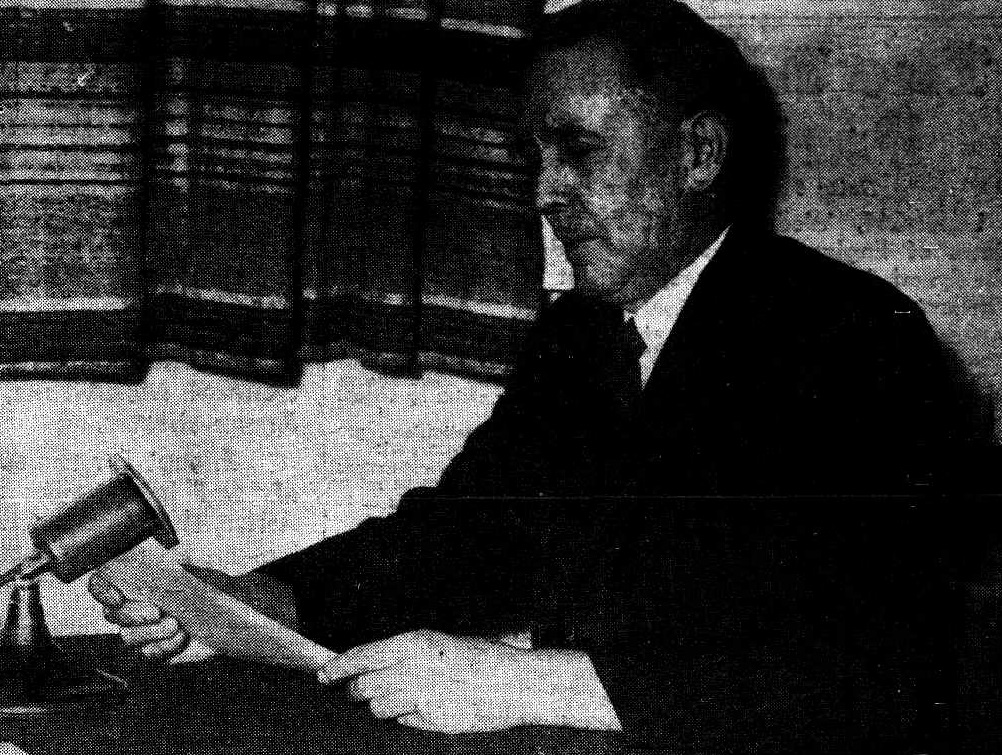
-FROM HIS CANBERRA OFFICE Prime Minister (Mr. Chifley) broadcasts to the nation on receiving news of Japan's surrender.
Prime Minister Announces Peace (1945, August 16). The Daily Telegraph (Sydney, NSW : 1931 - 1954), p. 3. Retrieved from http://nla.gov.au/nla.news-article247635645
Chifley's Announcement to Australia
CANBERRA, Wednesday: 'In his statement this morning the Prime Minister (Mr. Chifley) said:
'Fellow citizens.-— The war is over. The Japanese Government has accepted the terms imposed by the Allied Nations and hostilities will now cease. I now present to you the terms of the note sent by Britain, United States, Russia and China to the Japanese Government and accepted by it. They are as follow:
At the moment of surrender the authority of the Emperor and the Japanese Government to rule the State shall be subject to an Allied Supreme Commander, who will take such steps as he deems proper to effectuate the surrender terms. The Emperor shall be required to authorise and ensure the signature by the Japanese government and Imperial Headquarters of the surrender terms necessary to carry out the Potsdam declaration provisions, and shall issue commands to all Japanese military, naval and air authorities and to all forces under their control wherever located to cease active operations and to surrender their arms; also to issue such other orders as the Supreme Commander may require to give effect to the surrender terms. Immediately after surrender the Japanese Government shall transport war prisoners and civilian internees to places of safety as directed where they can be quickly placed on board Allied transports. The ultimate form of the Government of Japan shall, in accordance with the Potsdam declaration, and shall be es-tablished by the freely ex-pressed will of the Japanese peoples. The Allied Powers' armed forces will remain in Japan until the purposes set fourth in the declaration are achieved.
Mr Chifley then added:
'At this moment let us offer thanks to God; let us remember those whose lives were lost that we may enjoy tis glorious moment and may look forward to the peace which they have won for us. Let us remember, those whose thoughts with proud sorrow turn towards gallant ones who -will not come back.
'On behalf of the people and Government I offer humble thanks to the fighting men of the Uni-ted Nations whose gallantry, sacrifice and devotion to duty have brought us victory. Nothing can fully repay the debt; we owe them nor can history record in adequate terms their deeds in the black days that followed September, 1939, and December, 1941, until this moment. "We owe, too, a great debt to those men and women who per-formed miracles in production in secondary and primary industries so that the battle of supply could be won and a massive effort achieved. "Materials, money, and resources have been poured out so that the fighting men would not go short. Australia's part comparatively in terms of the fighting services and supplies ranks high, and the Australian people may be justly proud of everything they have done.
Tributes to Leaders
"I am sure you would like me to convey to the commanders of the fighting forces the warmest thanks for their skill, efficiency and great devotion.
"Especially do I mention General Douglas MacArthur, with whom we had so much in com-mon and with whom, we shared dangers when Australia was threatened with invasion. In your name I offer to the leaders of the United Nations our congratulations and thanks. "We join with the United States in the common regret that their Inspiring leader, Mr Frank-lin Roosevelt, did not live to see this day. Australians, too, will feel their happiness tinged with sorrow, that another man who gave his all was not spared to be with us today. That man was John Curtin.
"To Mr Churchill Generalissimo Stalin and Generalissimo Chiang- Kai-shek we offer the unstinted thanks of free people everywhere for what they have done for the common cause. Especially do we honor Mr Churchill, who in the dark days — to use his own words — said we had the honor to stand alone against aggression.
"And now our men and women will come home — our fighting men with battle honors upon them from every theatre of war. The Australians stopped the Japanese in their drive south just as they helped to start the first march towards ultimate victory in North Africa. 'Australians fought in battles of the air everywhere, and Australian seamen covered every ocean. They are coming home to a peace which had to be won.
"The United Nations Charter for world organisation is the hope of the world, and Australia has pledged the same activity in making it a success as she showed in framing it.
"Here in Australia there is much to be done. The Australian Government, which stood steadfast during the dread days of war, will give all that it has to working and planning to ensure that the peace Is the real thing. "I ask the State Government . and all sections of the community to co-operate in facing the tasks and solving the problems that are ahead. Let us join together in the march of our nation to future greatness.
"You are aware of what has been arranged for the celebration of this great victory and deliverance. In the name of the Commonwealth Government I invite you to join in the thanksgiving services arranged, for truly this is a time to give thanks to God and to those men against whose sacrifices for us there is no comparison."
Chifley's Announcement to Australia (1945, August 16). Tweed Daily (Murwillumbah, NSW : 1914 - 1949), p. 3. Retrieved from http://nla.gov.au/nla.news-article194391926
PLANS FOR SURRENDER
GENERAL DOUGLAS MacARTHUR, who has been appointed Supreme Commander of the Allied Forces of Occupation in Japan.
The announcement yesterday morning that Japan had capitulated was received with delirious joy by the peoples of the United Nations.
Cease fire in the Pacific was ordered by the Allies at 9.15 a.m. yesterday. In Sydney immense crowds took part in scenes of unpre-cedented emotion and gaiety.
General MacArthur has been appointed Supreme Commander for the Allied Powers, and has ordered the Japanese to send representatives to him at Manilla for instructions. Japanese planes which approached the United States Fleet after the surrender were shot down. The Japanese Cabinet has resigned, and the War Minister, General Anami, has committed hara-kiri.
An Australian Army unit will enter Japan with General MacArthur's forces to look after the interests of freed prisoners belonging to the British Commonwealth. This unit is already at Manila awaiting transport.
Last evening Tokyo Radio told Japanese troops overseas that it was useless to resist any longer.
It was officially announced at Buckingham Palace last night that the King desired next Sunday to be observed as a Day of National Thanksgiving. The King and Queen will attend a thanksgiving service at St. Paul's Cathedral on that day.
Sydney's reaction to the great news was a spon-taneous outburst of joy. Throughout the day the gaiety continued, but the fact that it was a day of deep thanksgiving as well was not forgotten. Special services in many churches were attended by crowded congregations, and many people paid reverent tribute at the Cenotaph. At night there was a search-light and rocket display.
Early this morning crowds were still thronging the streets of Sydney cheering and dancing. Police estimate that there were a million people in the streets during the night. The great crowds were entertained for hours by leading radio artists from platforms at various points. There were similar celebrations in other capital cities, and in country towns throughout Australia.
A 12-page Illustrated Supplement covering all aspects of the Pacific war is published with this issue.
JAPAN CAPITULATES DELIRIOUS JOY IN AUSTRALIA (1945, August 16). The Sydney Morning Herald (NSW : 1842 - 1954), p. 1. Retrieved from http://nla.gov.au/nla.news-article17950203
JAP SURRENDER document is signed aboard USS Missouri in Tokyo Bay by Mr. Mamorer Shigemitsu, Japanese Foreign Minister.—Australian Official Photo.
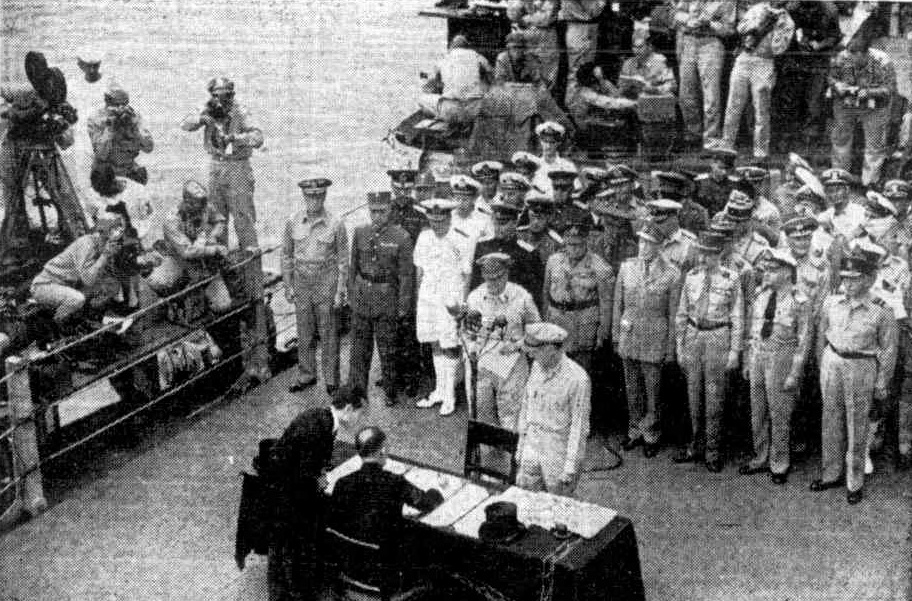
No Title (1945, September 14). Tribune (Sydney, NSW : 1939 - 1976), p. 1. Retrieved from http://nla.gov.au/nla.news-article208695208
THE JAPANESE SURRENDERS
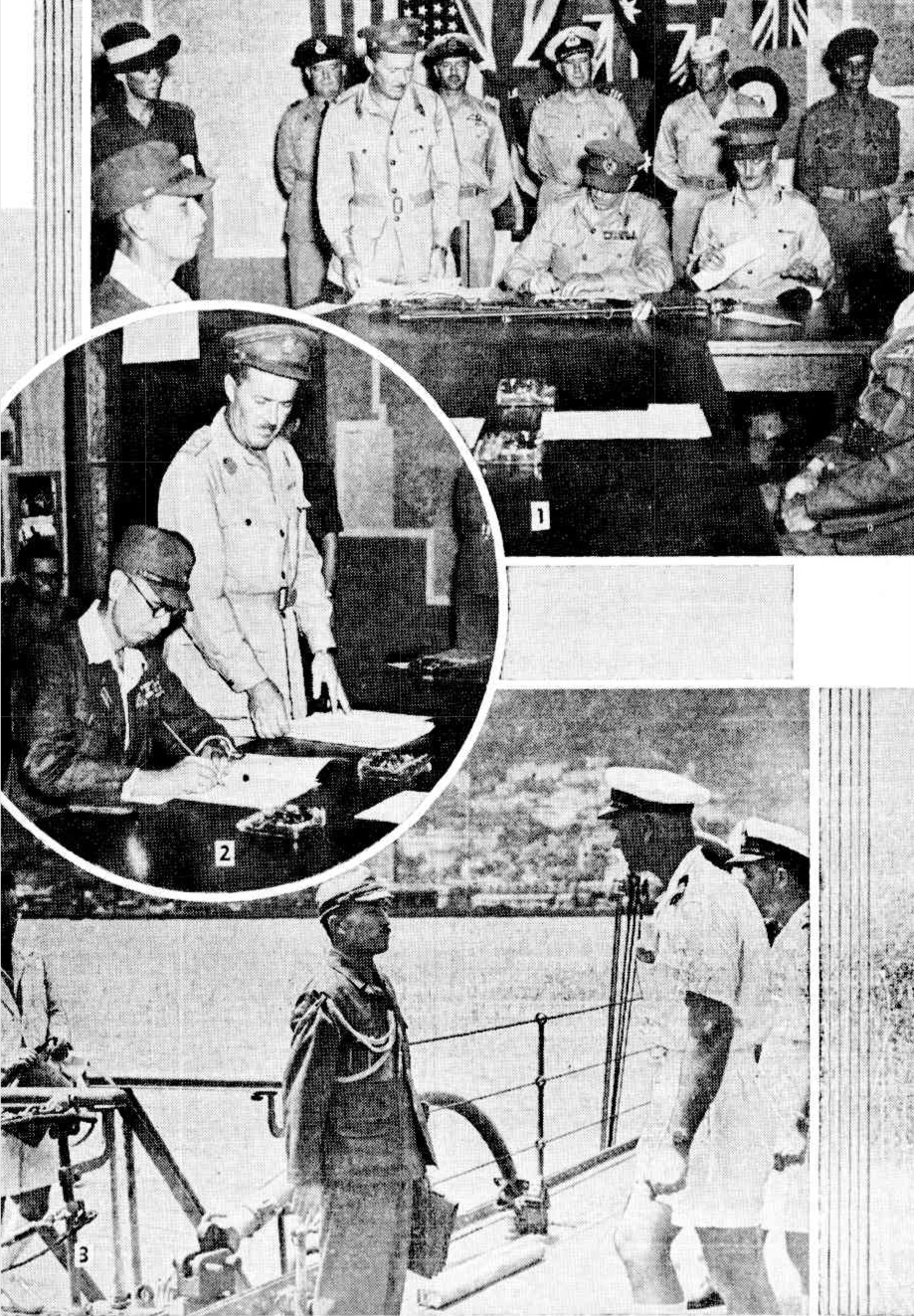
Official surrender signing pictures are shown on this page. (1) Lt-General S. G. Savige signing the surrender documents in the battleroom at Second Australian Corps headquarters, Torokina. The Samurai swords of Lt-General Kanda and Vice-Admiral Samijima have already been handed over and are on the table in front of General Savige. (2) Lt-General Kanda signing the surrender documents on behalf of Japan in the Second Australian Corps headquarters, Torokina. (3) A Japanese envoy and his interpreter coming aboard HMS Swiftsure (temporarily carrying the flag of Rear-Admiral C. H. J. Harcourt, CB, CBE) immediately after the occupation of Hong Kong by the British task force, the envoy is being met by Lt G. Albert, of South Africa, as he steps on to the quarterdeck.
THE JAPANESE SURRENDERS (1945, September 13). Western Mail (Perth, WA : 1885 - 1954), p. 65. Retrieved from http://nla.gov.au/nla.news-article38566091
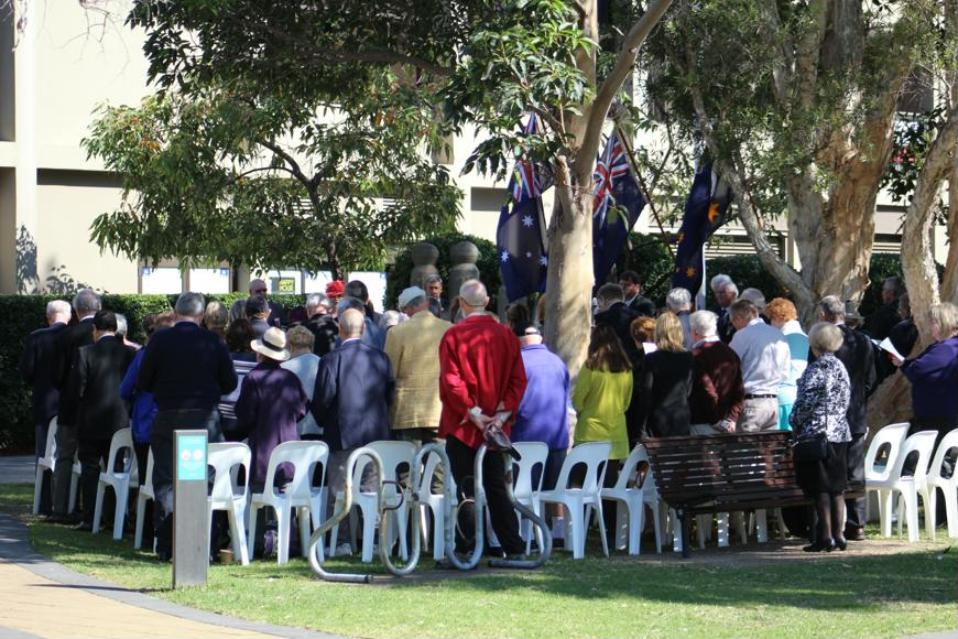
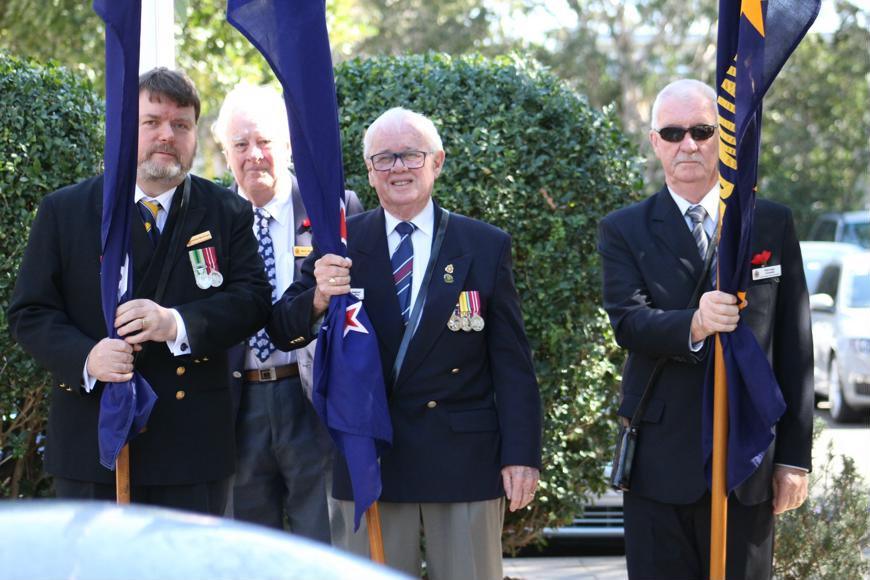
Andrew MacGregor, Greg Attwood and Phil Ivey
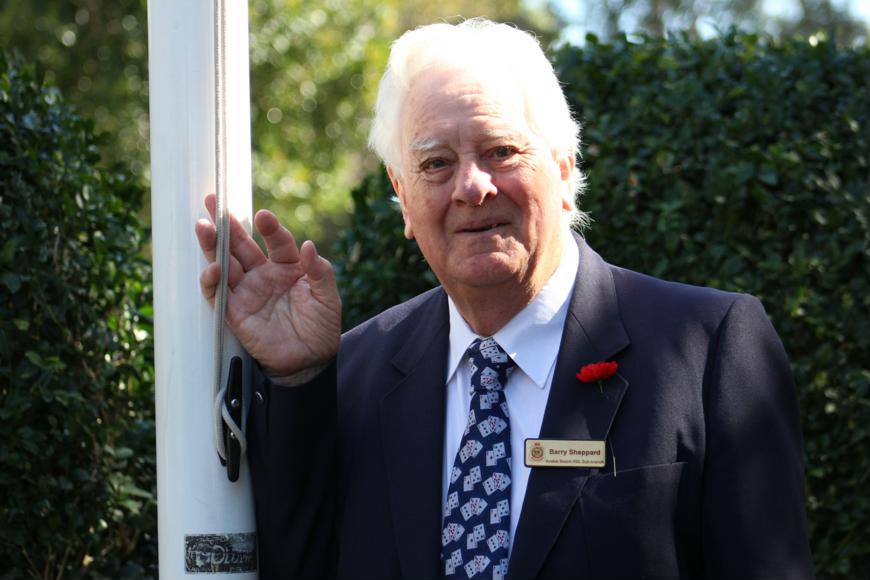
Barry Sheppard
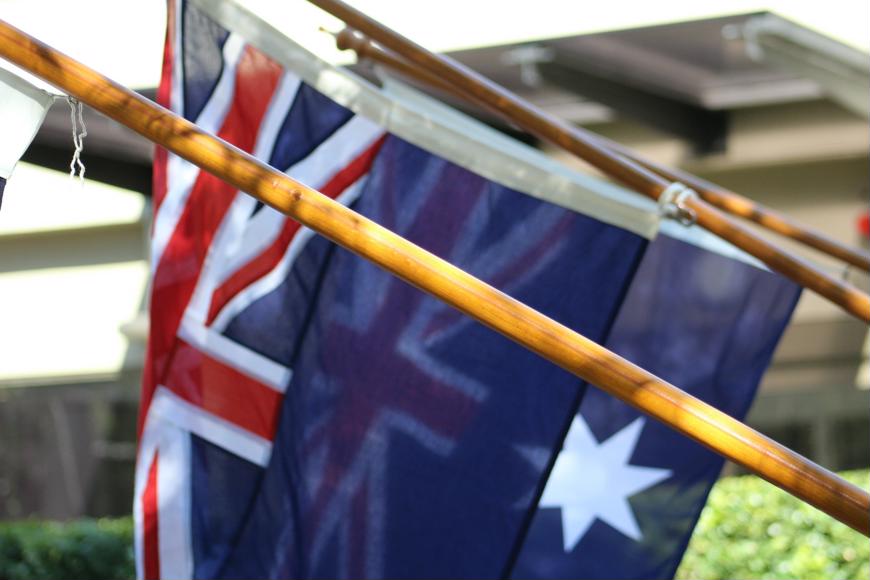
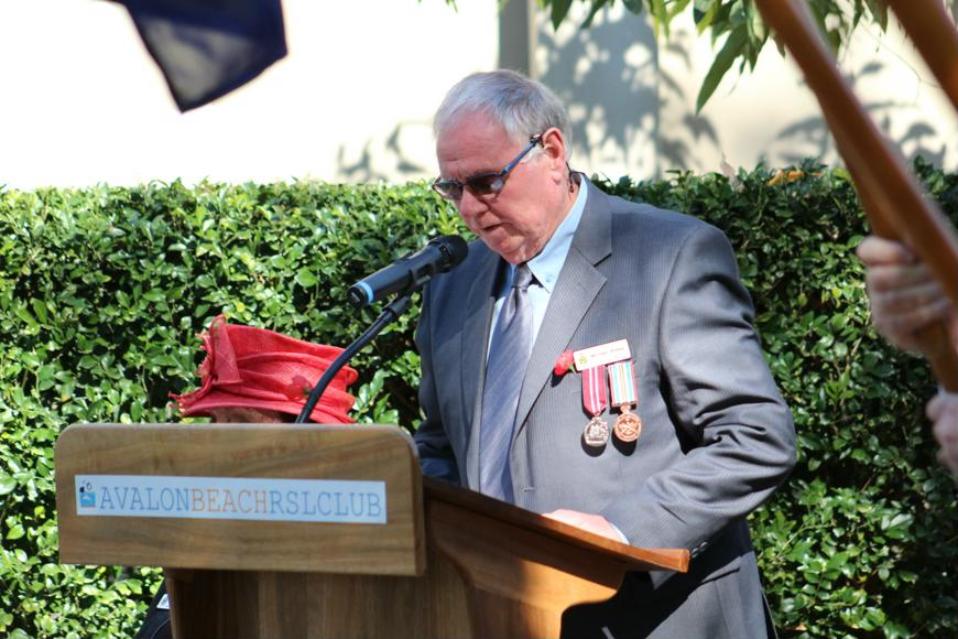
Prayer for the Fallen - read by Hon. Secretary Michael Ridley
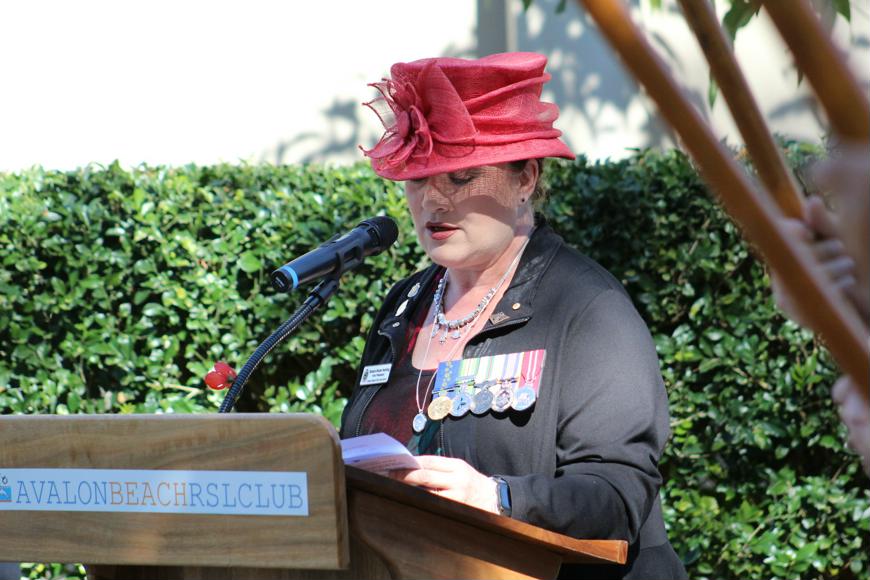
Prayer for the Services - read by Vice President Tamara Sloper Harding OAM
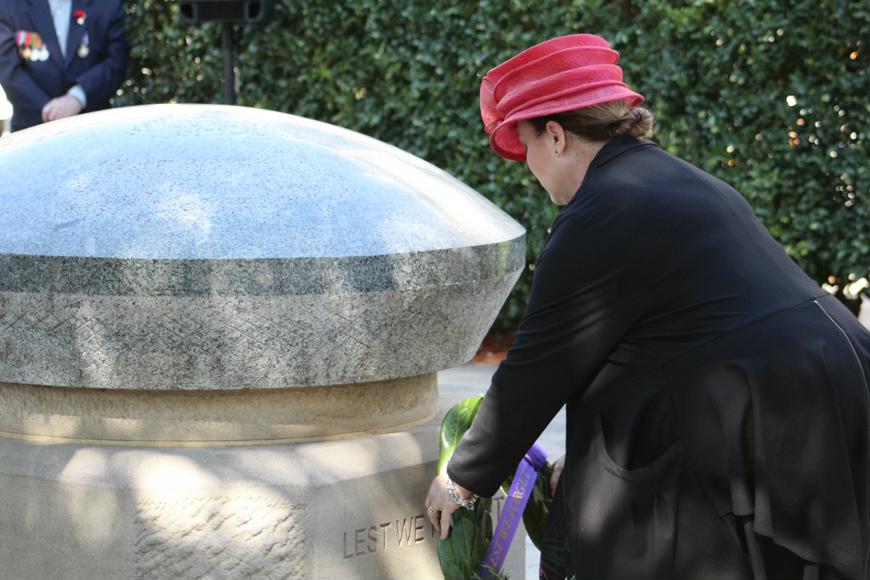
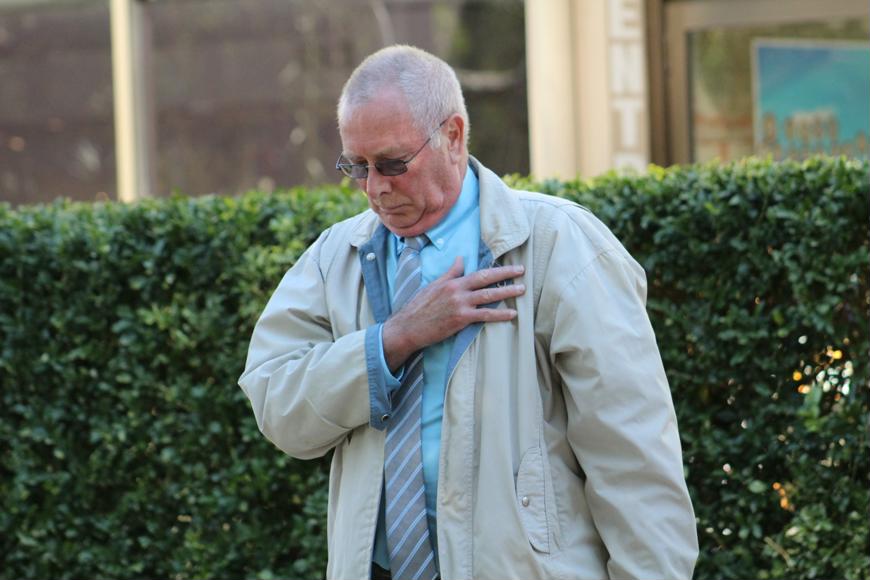
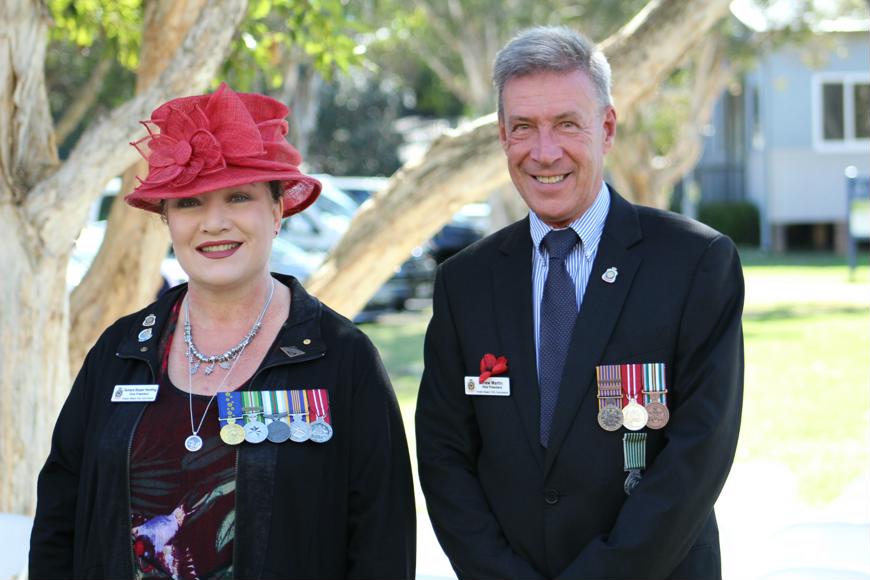
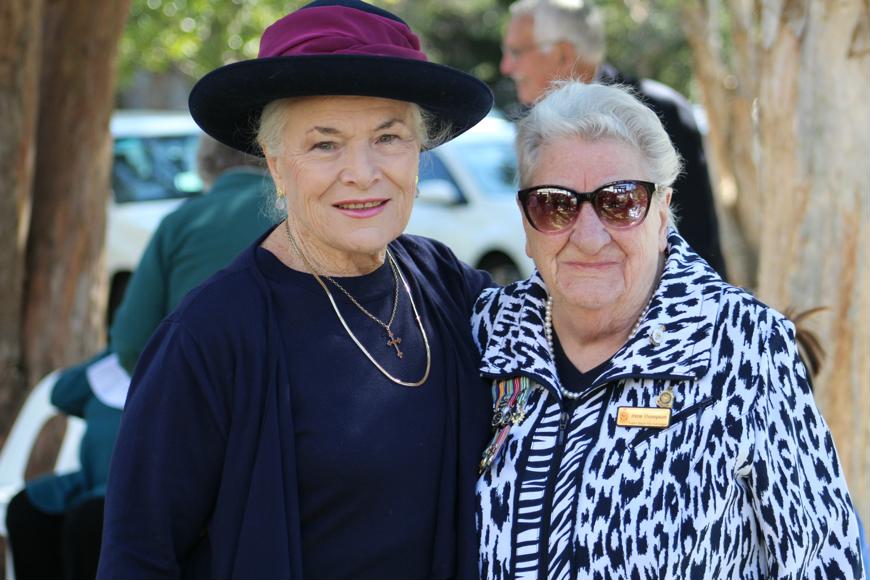
Dannie Sloper and Irene Thompson (former Wrens).
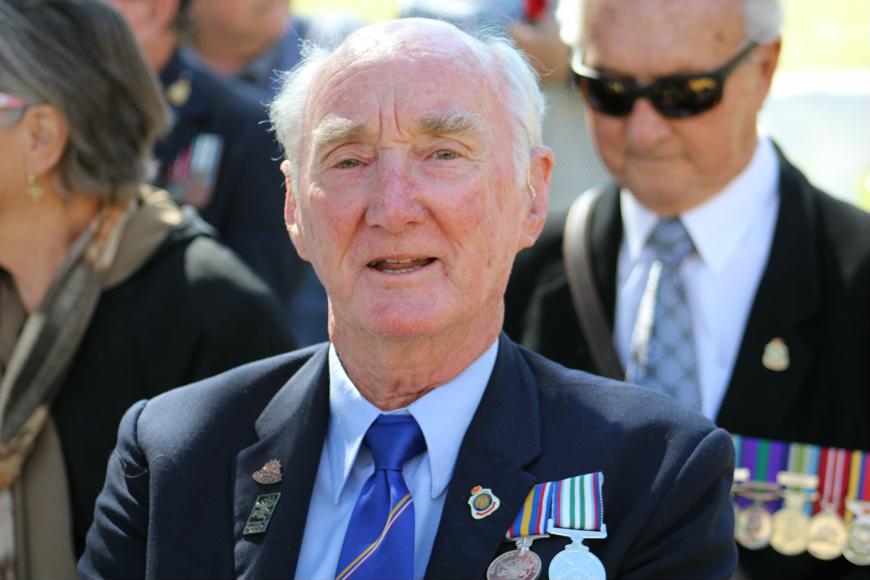
John Denham.
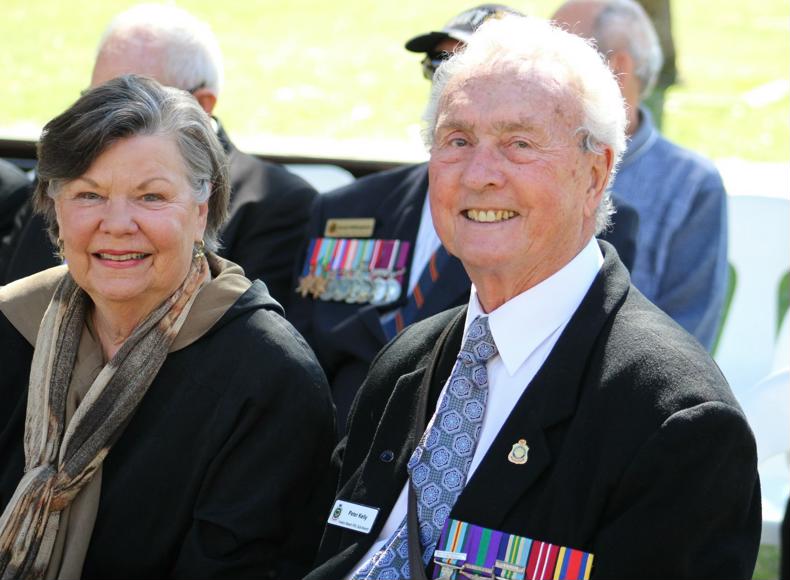
Glenda and Peter Kelly.
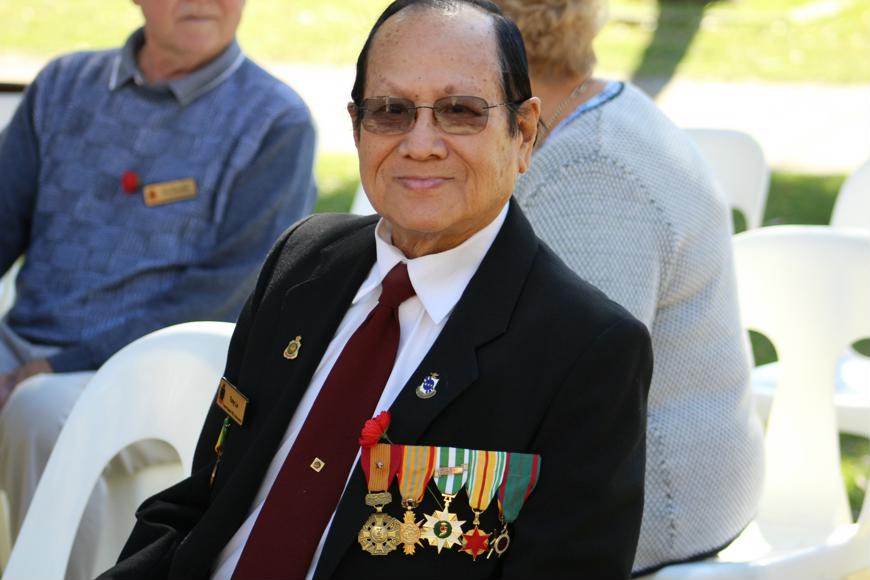
Tony Le.
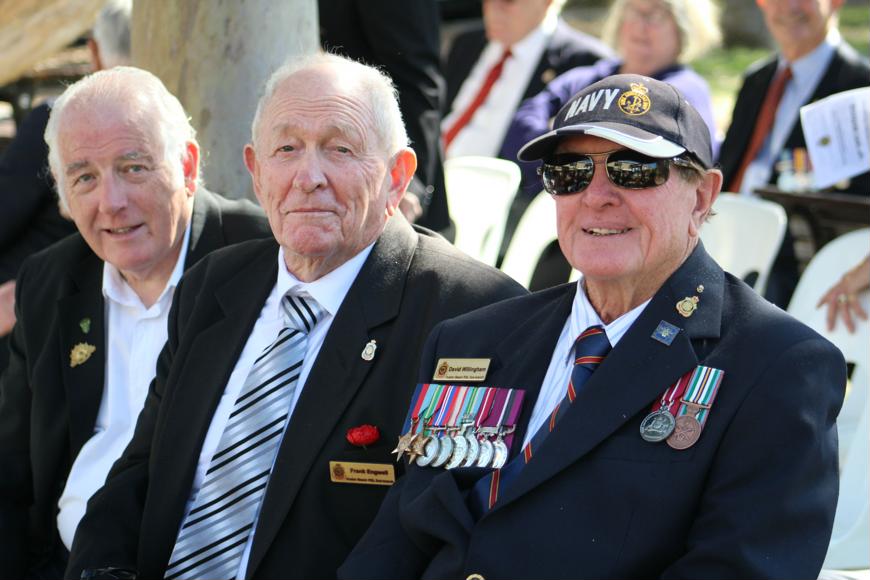
Trevor Ellis, Frank Engwell and David Willingham.

Cliff and Lyn Dunn.
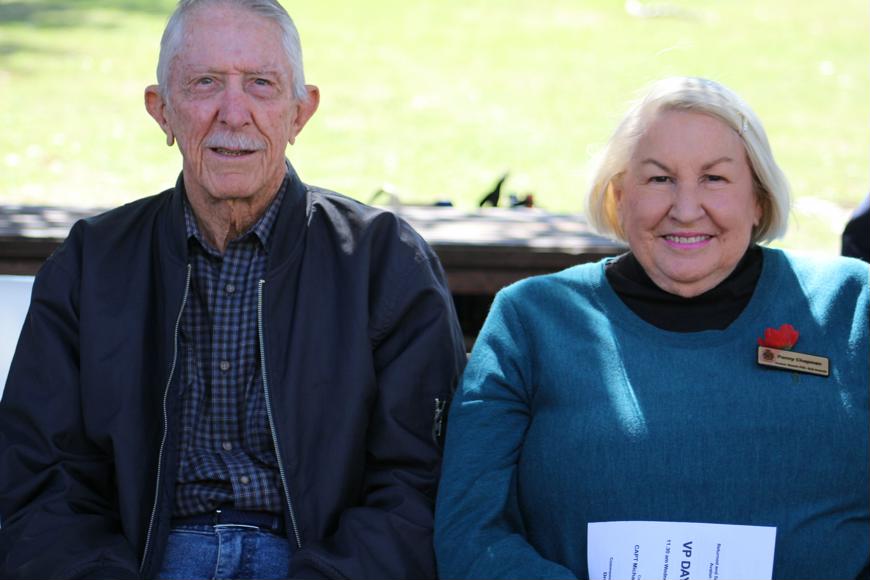
Don Hughes and Penny Chapman.
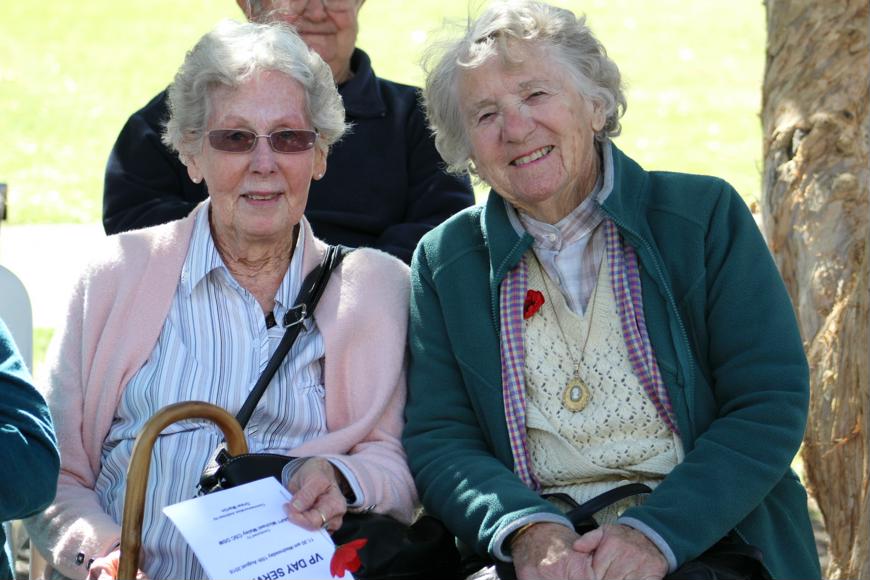
Cath van Balen and Doris Sheppard.
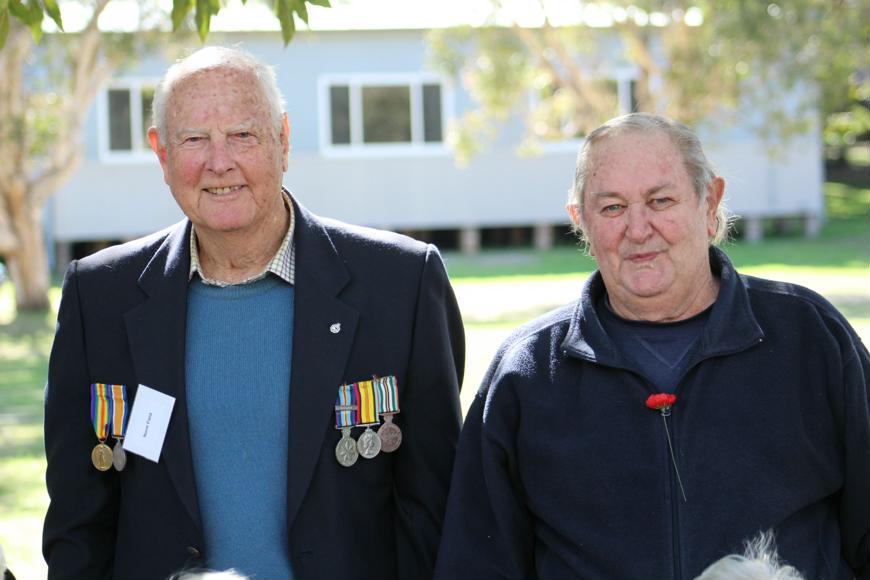
Norman Field and John McLean.
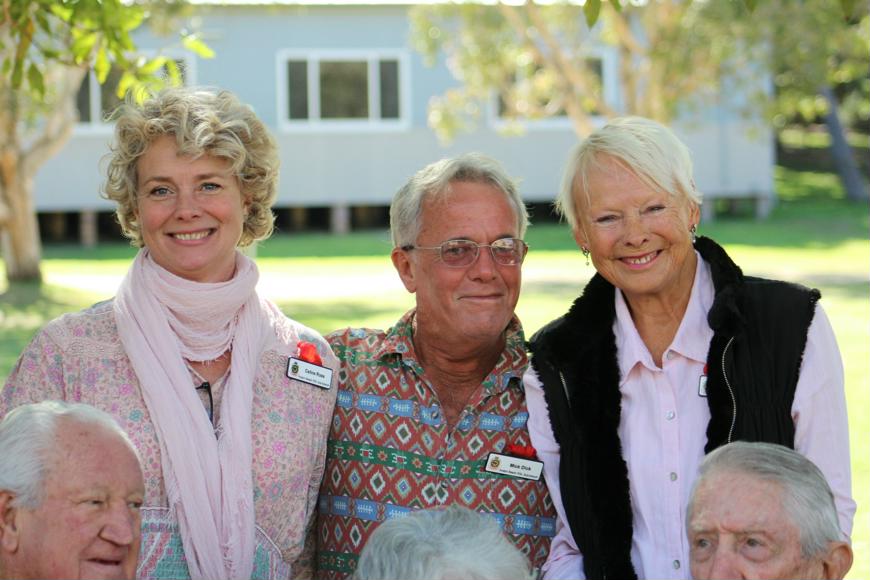
Celine Ross, Mick Dick, Bo Hanmer.
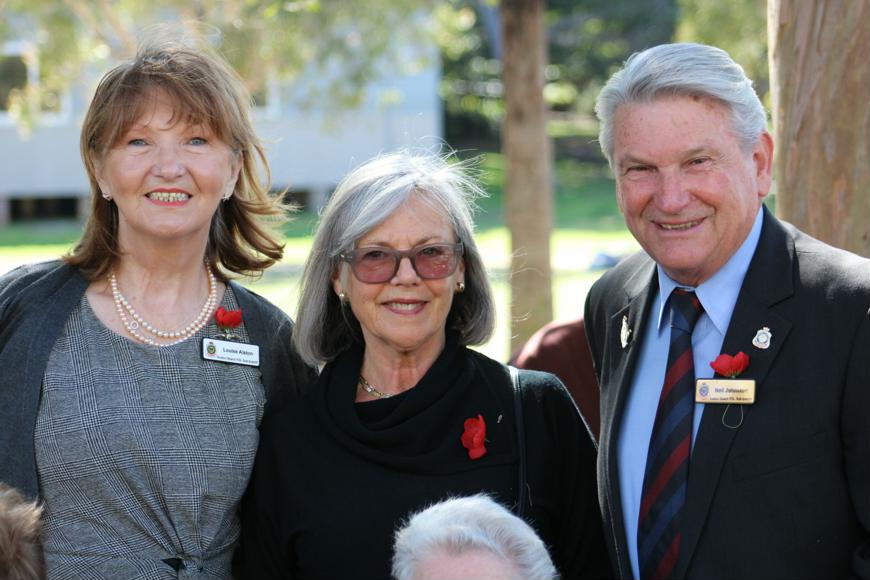
Louise Alston with Anne and Neil Johnston.
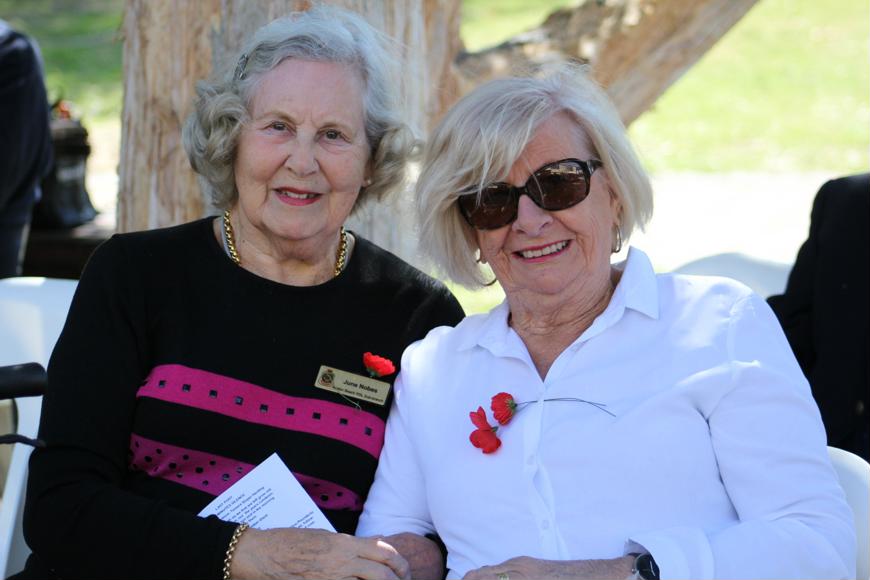
June Nobes (former Wrens) and Jan Parker.
